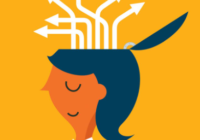What is decision fatigue really?
In short, its the idea or notion that our brains have a limited daily capacity for making decisions. Once our capacity for making decisions has been reached or exceeded for the daily the likelihood that we will make a poor decision is extremely high.
Okay… So now that we know what it is, lets look at some examples of where this is seen to document its actually a real thing.
Real-life examples of decision fatigue have been described in various studies. One of those studies took a look at Israeli prisoners who were going before a judge for a parole hearing and examined if they would be set free. (You can read this study here.)
After analyzing over 1,100 decisions over the course of a year, the researchers found that when it was time to decide if a prisoner should be granted parole, it wasn’t the crime that was committed, or the length of the sentence, or the ethnicity of the offender that determined prisoner’s future.
Instead, the biggest influence seemed to be the time of day the prisoner stood in front of the judge. The prisoners who appeared later in the day were less likely to be released on parole than those who appeared in the morning.
The judges were not treating prisoners unfairly on purpose. They were actually just experiencing decision fatigue. The mental work required to rule on case after case all day wore each judge down, weakening his ability to make a good decision.
This resulted in quick decisions that would make it easier for the judge at that moment, which was to deny parole to the prisoners appearing before him. Rather than agonizing over decisions, the judges would typically ease their mental strain by resisting change and keeping the prisoners locked up.
YIKES!
Why “Fun” Decisions Are Often the Hardest to Make
There have been more than several instances of how making a lot of decisions in a short period of time often leads to poor results.
We’ve all been there. You ask your spouse what they want for dinner, and they respond by syaing “I don’t know, what do you want”? After going back and forth, you decide to take the easy way out and order a delicious (yet unhealthy) pizza. Fail!
You could have avoided this poor decision if you would have created a meal plan and shopped for the necessary ingredients earlier in the week. When we have too many choices, it leads to an overwhelming feeling, causing people to either make bad choices or shut down and do nothing.
Having a regular routine limits the number of decisions you have to make each day, which increases your odds of doing the right thing.
Did you know famous people subscribe to decision fatigue?
Did you know that former President Obama and Mark Zuckerberg basically wear the same outfit every day to cut down on making decisions? Obama either wore a grey or blue suit. Zuckerberg on the other hand usually wears grey t-shirts.
As Obama told Vanity Fair in 2012, managing your life as a president requires that you cut away the mundane, frustrating decisions. “You’ll see I wear only gray or blue suits,” he said “I’m trying to pare down decisions. I don’t want to make decisions about what I’m eating or wearing, because I have too many other decisions to make.”
Zuckerberg took a page out of Steve Jobs’ book after noticing that Jobs always wore a black turtleneck and jeans. In various interviews over the years he’s mentioned that he’d rather use his mental capacity to make decisions on how best to serve billions rather than focusing on the small and mundane decisions in his life.
I know right? It’s wild! And it actually makes some sense no?
So… now that we know what it is, how can we combat this and use what we know to our advantage? Here are 9 things you can do to help combat decision fatigue.
#1. Make Your Most Important Decisions in the Morning
Your mind is the clearest during the morning hours because you’re not yet worn out from the day’s activities. You haven’t been faced with a plethora of decisions yet, and you are able to stop and think about your situation.
#2. Choose Simple Options for Less Important Decisions
For the lower priority items on your daily to-do list, that really have no impact in the long run, go for the simpler option. Which option makes you feel less overwhelmed? Which is the easiest thing to do right now?
Depending on how complex the issue is, big decisions often require more time and consideration regarding your long term goals as well as short term ones. For decisions that are more immediate, taking the path of least resistance is most often the better choice.
One basic decision-making flaw is treating easy consumer decisions as if they were difficult and important in the long run. While you likely know that every brand of floss will get the job done, you may still stand in the store and contemplate the pros and cons of the different varieties. This is a waste of time, yet it is very common.
People tend to do this because any wasted deliberation in a store is a mishap. The vast array of choices confuses you into thinking that this decision is worth taking a significant amount of time to make. Just grab what you know works and carry on with your day.
#3. Plan Your Daily Decisions in Advance
Even better than waiting until the morning is to plan the most insignificant decisions the night before they will happen. In fact, you can turn this into a habit that’s part of your bedtime routine.
For example, maybe you aren’t sure what you are going to bring to work for lunch the next day. Take some time to consider your options so you don’t end up reaching for a cheeseburger at 11:30 am.
To plan even more in advance, consider making frozen meals that you can have on hand so you can eat them when life gets a bit busy and you aren’t able to take the time that you would like to plan out your meals in advance.
#4. Don’t Make Big Decisions When You’re Hungry
We have all heard about the dangers of going grocery shopping while hungry, but research also suggests that we shouldn’t make any important decisions on an empty stomach. When you are hungry, your stomach produces a hormone called ghrelin, which negatively impacts decision making.
This appetite-increasing hormone decreases impulse control and increases the chances of making a bad decision. By studying rats, researchers found that, just like humans, rodents find it difficult to resist a quick temptation when they have increased levels of ghrelin.
Because of this, it is important to make sure that you have had enough to eat before making a decision, especially if it is later in the day and you are already prone to decision fatigue.
#5. Limit and Simplify Your Choices
If you are faced with too many decisions (like what to eat, wear, or what you see on TV, narrow it down to three choices at a time. If you can’t make a decision within the three choices that you have limited yourself to, choose another three options to consider.
So, say you’re going through the menu at a restaurant and you’re trying to decide what you want to eat. Narrow the menu down to three choices at a time until you are able to decide what’s best for you. This will help to prevent you from becoming overwhelmed with all of the information in front of you.
#6. Go Minimalist (???)
Minimalism is a lifestyle movement that aims to cut down on possessions so you only have the essential items. Life can be lived more fully when small and unnecessary decisions have to be made, so sticking to the essentials for these things leaves you more room to focus on more important decisions.
While a lot of people choose to apply minimalism to their wardrobes by only purchasing timeless and necessary items that can then be accessorized or dressed down, you can also go minimalist when decorating your house or considering the car you want to drive.
Minimalism requires you to determine the most important pursuits in your life, and taking away everything that is distracting you from that. By doing this, you can find a way to live your life that adds richness around life’s key elements.
#7. Aim for “Good enough” Instead of Perfection
If you are working on something that is not helping you achieve your final goal, leave well enough alone. If you keep thinking everything has to be perfect, your perfectionism will develop into procrastination. Complete something until it is good enough, and if it needs revising/fixing later, you can always go back and make the necessary changes.
#8. Remove Unnecessary Distractions
Set aside specific parts of the day to tend to any distractions such as social media and email. Give yourself a limited amount of time to engage in these activities, and get back to work as soon as that time is up.
When shopping, don’t enter a store unless you know specifically what you are there to purchase. Otherwise, you will present yourself with a lot of little decisions on whether or not you want to buy something on impulse. Don’t allow these little distractions into your life.
Finally, be wary of the “shiny objects” in your life. Often, we are tempted to start a new project or build a habit, simply because it seems fun or interesting. But these temptations usually distract us from what’s working in your life.
#9. Focus on What’s Actually Important
While we all have some sense of FOMO, or the fear of missing out, when it comes to finishing your most important tasks, you will have to turn down some things. If you put too much on your plate, it is likely to get in the way of accomplishing your main priorities.
Simply put: You have to know what your priorities are and then make decisions based on these values.
In Summary
Decision fatigue may be one of the many underlying reasons why you have not been able to build good healthy habits and daily routines in the past. Once you are aware of decision fatigue and understand how to overcome it, you’ll be able to take the necessary steps to stay consistent with your daily habits.
If you implement just a few of the nine strategies that we covered in this article, then remove a lot of the unnecessary decisions in your life and focus on what’s truly important in your life.
Comment below and let us know:
- How Do you plan on addressing decision fatigue
- What things can you change easily
- Which ones will perhaps be more challenging



